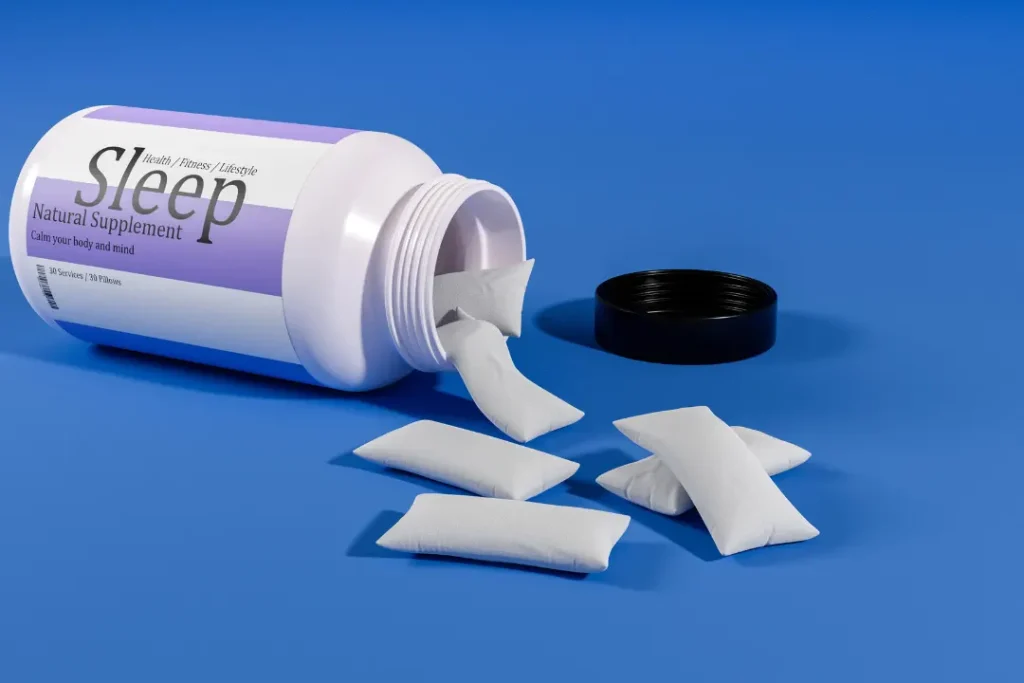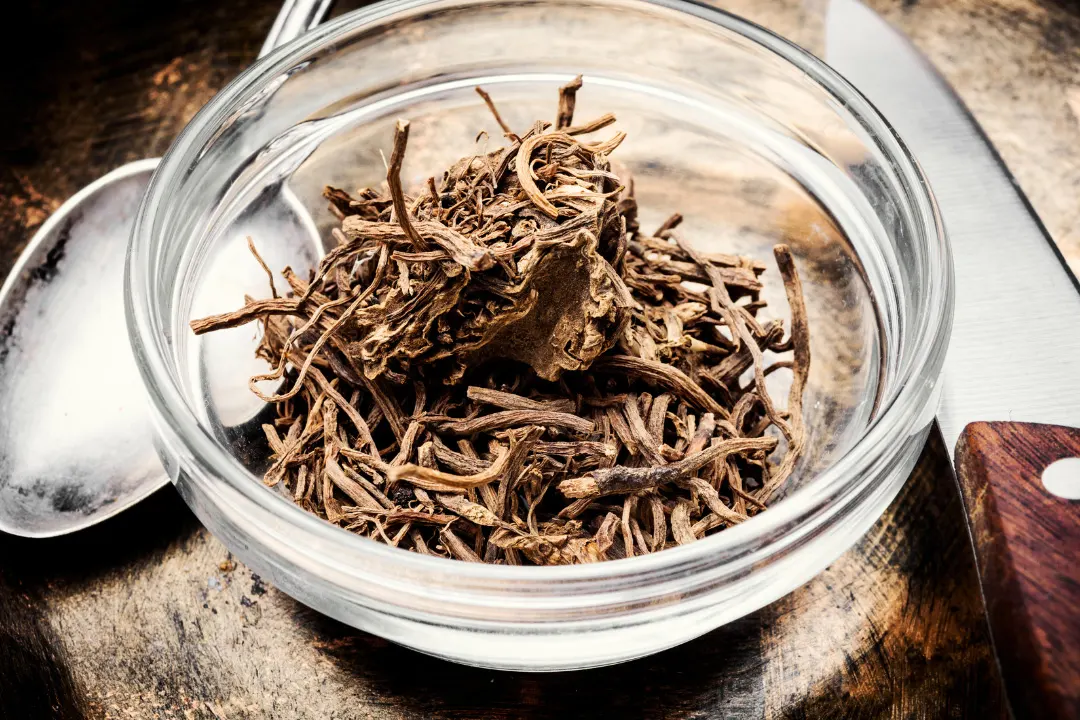Traditional herbal remedies have been using valerian root for years due to its many health advantages. Valerian root is the root of a perennial herb known as Valeriana officinalis. It originated in Europe and Asia but it is currently widely grown all over the world, including in the US. Because of its calming and sedative properties, valerian root is frequently used to enhance mood, encourage better sleep, and lessen anxiety. Due to its ability to improve focus and cognition, valerian root has recently drawn interest as a nootropic supplement.
You May Also Like:
How To Get Better Sleep: 16 soothing suggestions to help you enjoy better sleep night after night
Valerian Root: Benefits, Dosage, Side Effects, Drug Interactions, And Other Important Information is an original (HealthXWire) article.
Nature of Valerian Root
Valerian root is the underground part of the perennial herb of the Valerianaceae family, Valeriana officinalis. In the fall, the plant’s roots are often gathered, dried, and used medicinally.
People have been using valerian root for many years as a natural treatment for conditions like insomnia, anxiety, and nervousness. The characteristic musty or earthy smell of the root is thought to be brought on by the presence of several volatile substances, including isovaleric acid. Although having a strong smell, valerian root tastes mild and somewhat sweet and can be taken as a tea or supplement.
Health Benefits of Valerian Root
The usage of valerian root as a natural treatment for many illnesses dates back many years. The following are some of the most well-known health advantages of valerian root:
Better Sleep: Valerian root is most well-known for its capacity to encourage relaxation and raise the standard of sleep. Many studies have shown that valerian root can speed up the process of falling asleep and enhance the quantity and quality of sleep. In comparison to a placebo, valerian root was found to significantly improve sleep quality in a meta-analysis of 16 clinical trials.
Decreased Anxiety and Depression: Both animal and human research have demonstrated the anxiolytic and antidepressant properties of valerian root. A total of 202 people participated in a randomized, double-blind, placebo-controlled study which shows that valerian root extract effectively relieved the symptoms of generalized anxiety disorder. n a different study, it was discovered that valerian root extract helped postpartum depressed women by lowering their depressive symptoms.
Increased Cognitive Function: The possible cognitive-enhancing properties of valerian root have also been investigated. Valerian root extract enhanced reaction time and accuracy on a cognitive task in research involving 20 healthy people. In a different study, valerian root was discovered to help older women with both their mood and cognitive performance.

Chemistry and Physiological Mechanisms of Action of Valerian Root
The bioactive substances valepotriates, valerenic acid, and valeranone are among those found in valerian root. These substances are thought to be in charge of the sedative and anxiolytic properties of the root. It has been demonstrated that valerenic acid, in particular, has a strong affinity for GABA-A receptors, which are crucial for controlling anxiety and sleep. Valerian root may support relaxation and lessen anxiety by boosting gamma-aminobutyric acid (GABA) activation.
Valerian root may influence other neurotransmitters and signalling pathways in the brain in addition to its effects on GABA receptors. For instance, valerian root might make more serotonin and dopamine available; these neurotransmitters are crucial for mood management and cognitive performance. Although the mechanisms underlying these actions are not well known, valerian root may potentially have antioxidant and anti-inflammatory properties.
Optimal Dosage of Valerian Root
The ideal valerian root dose will vary depending on the user’s age, weight, and overall health as well as the form and concentration of the valerian root supplement. Although some studies have utilized larger doses, the majority of valerian root research has employed daily doses of 300 to 900 mg.
Side Effects of Valerian Root
When used in moderation, valerian root is generally regarded as safe, but some people may experience negative effects, especially at higher doses. The following are typical adverse effects of valerian root:
- Dizziness
- Headache
- Upset stomach
- Fatigue
- Dry mouth
- Abdominal cramps
- Muscle weakness
- Hangover-like symptoms
Although it is extremely unusual, valerian root may occasionally have more severe negative effects, such as liver damage. An allergic reaction may arise in people who have previous allergic reactions to ragweed, daisies, or chrysanthemums, which are members of the same plant family as the valerian root.


Potential Substance Interactions with Valerian Root
If you are using any medications or supplements, you should consult your healthcare professional before using valerian root because some supplements and medications may interact with it. Medications that induce sedation, such as benzodiazepines and barbiturates, may interact with valerian root and intensify its sedative effects. Moreover, supplements like kava and melatonin that have sedative properties may interact with valerian root.
Best Responsible Use of Valerian Root
Nootropic supplement myPEAK DeltaSleep is a synergistic and highly bioavailable blend of valerian root and other natural components for those looking to increase their attention and cognition. The components of included are valerian root, chamomile, passionflower, lemon balm, L-theanine, GABA, and 5-hydroxytryptophan (5-HTP). These are just some of the seven science-backed hero ingredients in myPEAK DeltaSleep.
myPEAK DeltaSleep’s goal is to help you get to sleep quicker and deeper so that you can wake up feeling more rested and rejuvenated. It is a cruelty-free and non-GMO product made from all-natural ingredients. myPEAK DeltaSleep is made with scientifically proven substances in an FDA-approved facility after being developed by doctors and tested in laboratories. It also has cGMP certification. With 30 capsules or pills in each bottle, myPEAK DeltaSleep can be used for a full month.


Valerian Root: Conclusion
Valerian root is a well-known traditional medicine used for its calming and sedative properties and also to help induce sleep. Valerian root has a high affinity for GABA-A receptors and is able to influence neurotransmitters and signalling pathways. This herbal remedy has been proven to decrease anxiety and reduce depression. The supplement, myPEAK DeltaSleep contains this bio-active element of valerian root. This element can work synergistically with other components if you are looking for a supplement that can enhance mood. However, it is important to seek the advice of a healthcare professional in order to prevent abuse of this type of supplement by overdosing or combining it with other antagonistic supplements.
Important Note: The information contained in this article is for general informational purposes only, and should not be construed as health or medical advice, nor is it intended to diagnose, prevent, treat, or cure any disease or health condition. Before embarking on any diet, fitness regimen, or program of nutritional supplementation, it is advisable to consult your healthcare professional in order to determine its safety and probable efficacy in terms of your individual state of health.
Regarding Nutritional Supplements Or Other Non-Prescription Health Products: If any nutritional supplements or other non-prescription health products are mentioned in the foregoing article, any claims or statements made about them have not been evaluated by the U.S. Food and Drug Administration, and such nutritional supplements or other health products are not intended to diagnose, treat, cure, or prevent any disease.
Table of Contents


